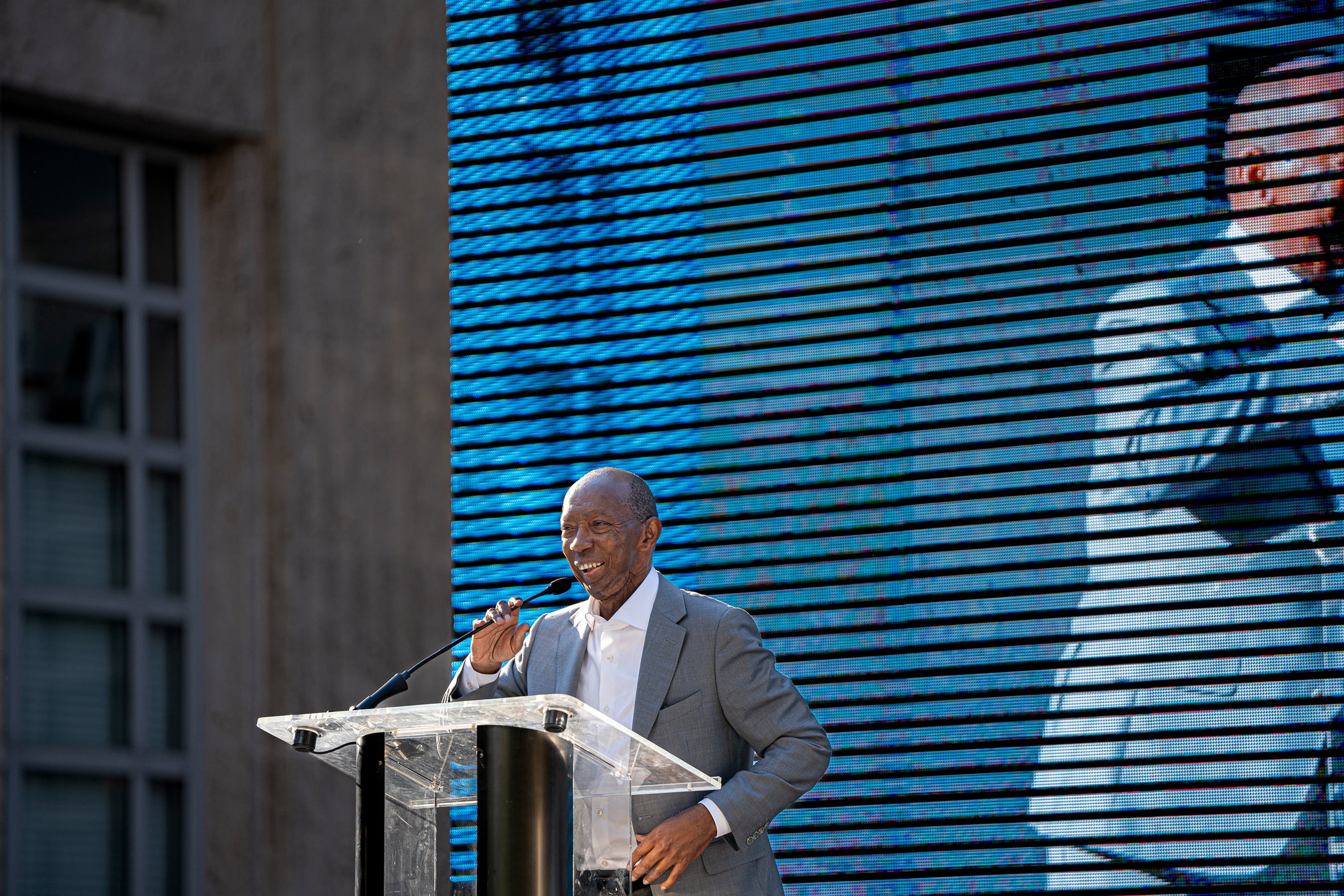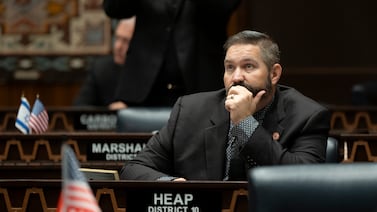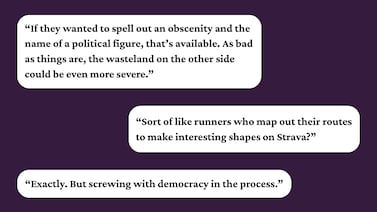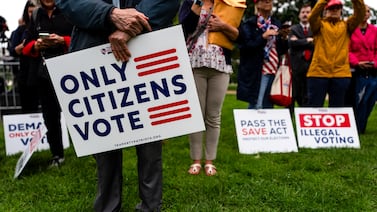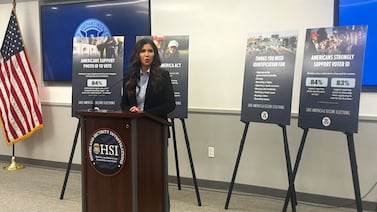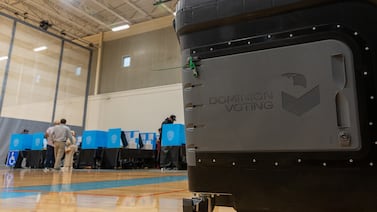Votebeat is a nonprofit news organization reporting on voting access and election administration across the U.S. Sign up for Votebeat Texas’ free newsletter here.
Adrian Izaguirre grew up in Houston’s South Park neighborhood, a historically low-income community tucked between Interstates 610 and 45, south of downtown. He still calls that place home.
For years, he has seen his neighbors struggle to find affordable housing and access to quality education. On any given day, Izaguirre and other residents in the predominantly Latino and Black neighborhood would have a hard time quickly accessing a local hospital. There are few nearby.
If a disaster were to happen, “the community would have a hard time trying to recover,” the 31-year-old said in an interview.
This is why he says it’s crucial that voters in the community, which is part of the state’s 18th Congressional District, have someone to represent them in Congress. But that seat has been vacant for months. Gov. Greg Abbott has called a Nov. 4 special election to fill the seat, but a mid-decade redistricting that Texas lawmakers are considering could force the winner of that race to run again in March — or leave voters in an entirely different district.
“It’s very discouraging to see it happen, and it also makes me feel powerless, like I have no say in how I get represented,” said Izaguirre, who’s been an active voter since he turned 18 and works for the NALEO Educational Fund, a nonprofit organization that seeks to elevate Latino political participation.
Some voting rights advocates are concerned about the prospect that a mid-decade redistricting, new district lines, and back-to-back elections will together lead to disaffection or confusion for low-income and minority voters in areas like the 18th District. They warn that such disruptions could diminish voter turnout and effectively disenfranchise some of the state’s most vulnerable voters.
18th District was shaped by legacy of Voting Rights Act
The 18th Congressional District, which includes inner Houston and surrounding Harris County areas, is home to more than 760,000 people. It was shaped by redistricting that followed the 1965 Voting Rights Act — signed into law by President Lyndon B. Johnson — and deliberately crafted to strengthen minority representation in Houston. Its creation and preservation over decades are themselves reflections of battles over race-based redistricting.
After her election in 1995, Democratic Rep. Sheila Jackson Lee carried forward Johnson’s legacy, making the seat a hub of Black political influence nationally.
After Jackson Lee died last year, Rep. Sylvester Turner won election to the seat. But Turner died in March. Abbott set a special election to fill the seat for Nov. 4, leaving the seat vacant for months and giving Republicans an advantage in Congress in the meantime.
The 18th District is the only congressional seat on the ballot that would also be affected by the mid-decade redistricting that Republicans are pushing through now in a special legislative session. It’s one of the districts that would be reconstituted as Republicans aim to flip five Democratic-held seats in their favor following a push by President Donald Trump’s advisers to shore up the GOP’s advantage in the U.S. House after next year’s midterms.
The latest map proposal moves its boundaries east and south of Houston and shifts more Democratic voters into the district, giving Republicans an advantage in a neighboring district.
In the typical redistricting cycle that happens once a decade after the census, the process of creating, reviewing, and approving new maps takes six to nine months. That timeline takes into account weeks of debate among lawmakers from both political parties and public input during multiple hearings. And even then, court challenges can extend the process and force more changes.
For this year’s proposed mid-decade redistricting, Republicans, who dominate both houses of the Legislature, are driving to compress that timeline to the 30-day length of a special session.
Democrats tried to stall the GOP effort by leaving the state for two weeks and breaking quorum. But they returned to Austin Monday after Abbott called another special session and threatened to keep doing so until the redistricting passed.
If lawmakers agree on new maps in coming weeks, the 18th District winner in November could be on the ballot again during the March primary election.
Candidates for the seat have led public town halls in the past few weeks to hear from voters, and hundreds of other voters have gathered at the capitol to testify in front of lawmakers in opposition to the proposed maps. But lawmakers have moved quickly to approve them anyway
That type of response to the public feedback is likely to lead to voter apathy, warned Joyce Lombard, president of the League of Women Voters of Texas, which has been mobilizing to educate the public about redistricting and how people can voice their opinions.
“We’re not taking the voters into account with this process,” Lombard said. “We’re taking the politics into account. It can’t help but to disenfranchise communities of color.”
How redistricting creates new divisions
In a place like the 18th District, a politically driven redistricting would change more than just the boundaries on a map, said Brandon Rottinghaus, a political science professor at the University of Houston.
“Communities can really take a hit” when tight-knit groups are split through redistricting, Rottinghaus said. “Social capital that has been built up over all of these years” is dismantled.
For instance, he said, members of a community advocacy group who have long histories working together for a common solution could end up in different districts, or individual families who may live in close-by communities could be split apart in separate districts and lose voting power.
The risk is especially acute in the 18th District, which is now entering its fifth month without representation in Congress. Communities there have struggled to recover from various natural disasters and threats to public health such as the COVID-19 pandemic and, more recently, Hurricane Beryl, a Category 1 storm that left parts of Houston underwater last year.
Izaguirre, the activist in South Park, said some of his neighbors are still trying to rebuild their homes and the damage left from that storm. That’s why he wants federal and state elected officials to consider the potential effects of the mid-decade redistricting battle on communities.
“It’s more than just a political party’s advantage,” Izaguirre said. “They literally have people’s lives on the line in different ways.”
Natalia Contreras covers election administration and voting access for Votebeat in partnership with the Texas Tribune. She is based in Corpus Christi. Contact Natalia at ncontreras@votebeat.org

